England vs Colombia, World Cup 2018: Penalty shootout demons exorcised to set up Sweden quarter-final
Five things we learned as England went through on penalty kicks

Your support helps us to tell the story
From reproductive rights to climate change to Big Tech, The Independent is on the ground when the story is developing. Whether it's investigating the financials of Elon Musk's pro-Trump PAC or producing our latest documentary, 'The A Word', which shines a light on the American women fighting for reproductive rights, we know how important it is to parse out the facts from the messaging.
At such a critical moment in US history, we need reporters on the ground. Your donation allows us to keep sending journalists to speak to both sides of the story.
The Independent is trusted by Americans across the entire political spectrum. And unlike many other quality news outlets, we choose not to lock Americans out of our reporting and analysis with paywalls. We believe quality journalism should be available to everyone, paid for by those who can afford it.
Your support makes all the difference.England exorcised their World Cup demons by beating Colombia on penalty kicks to set up a quarter-final against Sweden.
Tournament top scorer Harry Kane scored the opening goal of the game, beating David Ospina from the penalty spot after he was hauled down by Carlos Sanchez.
But in the 94th minute, Barcelona defender Yerry Mina headed home a dramatic equaliser to take the game into extra-time.
The game then went to penalties with England prevailing 4-3 thanks to Eric Dier's dramatic winning spot kick. The winners of the England vs Sweden quarter-final will play either Russia or Croatia for a place in the World Cup final. Here are five things we learned.
England deserved their win ... but only just
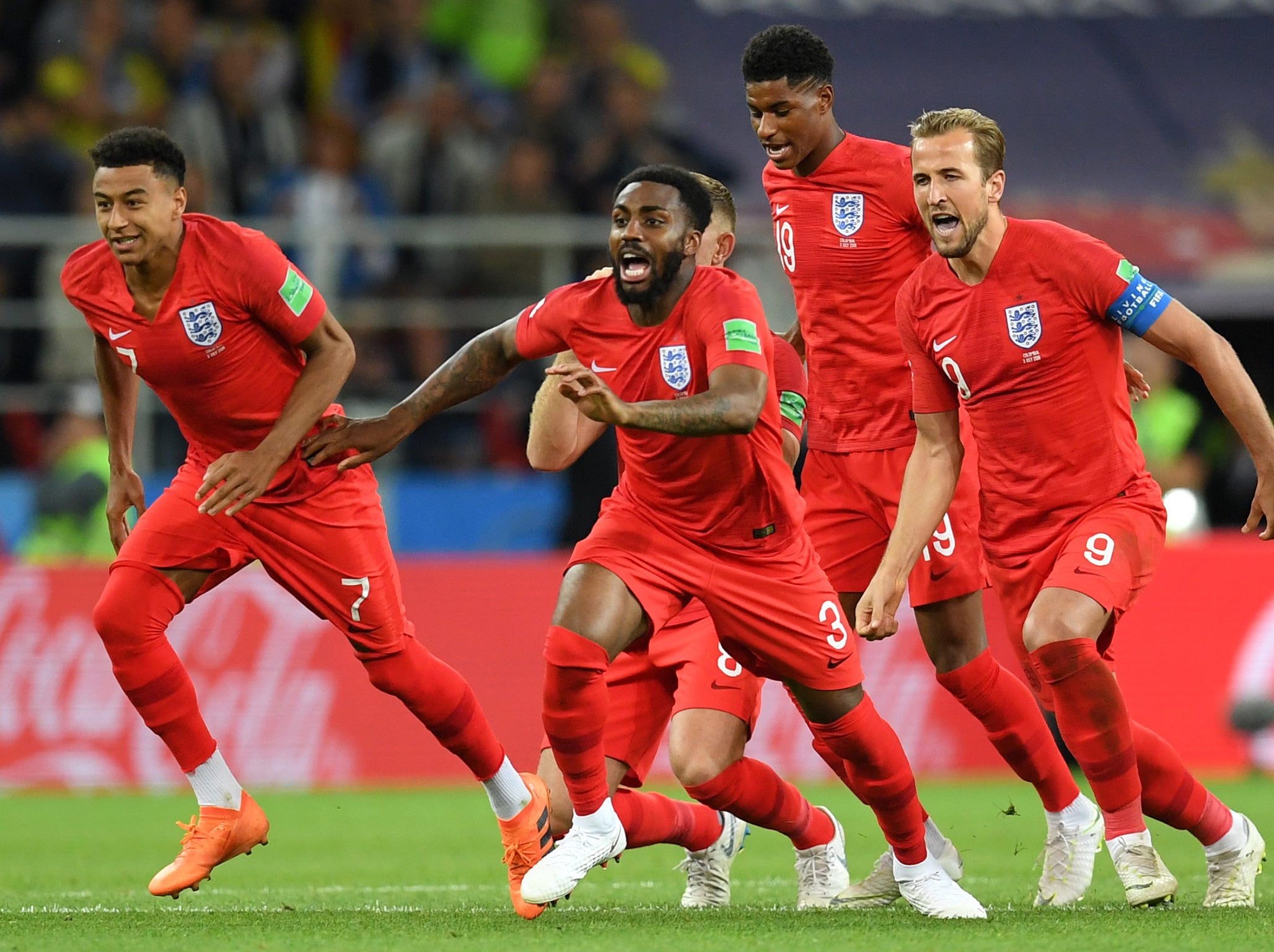
Let’s be honest: any win would have done. A lucky win, a scratchy win, an undeserved win: all that mattered against Colombia was that Gareth Southgate’s side delivered in the knockout stages of a World Cup for the first time in 16-years.
But for so long this looked to be a fully deserved win. Forget the Belgium hiccup – this was again the side that pulled it out of the bag against Tunisia when all hope appeared lost; the side that so comprehensively put Panama to the sword. There was no loss of momentum or absence of confidence. Southgate’s exciting young side were back.
Until Mina’s dramatic late goal, that is. And then England collapsed. Reeling from conceding when they already had one foot in the quarters, England’s crisis of confidence continued into the first-half of additional time, as Colombia finally grew into the game and went close to finding a winner. But to win on penalties – exorcising so many tournament demons in the process – shows the progress that this side has made. The future is theirs.
How do England bring the best out of Sterling?
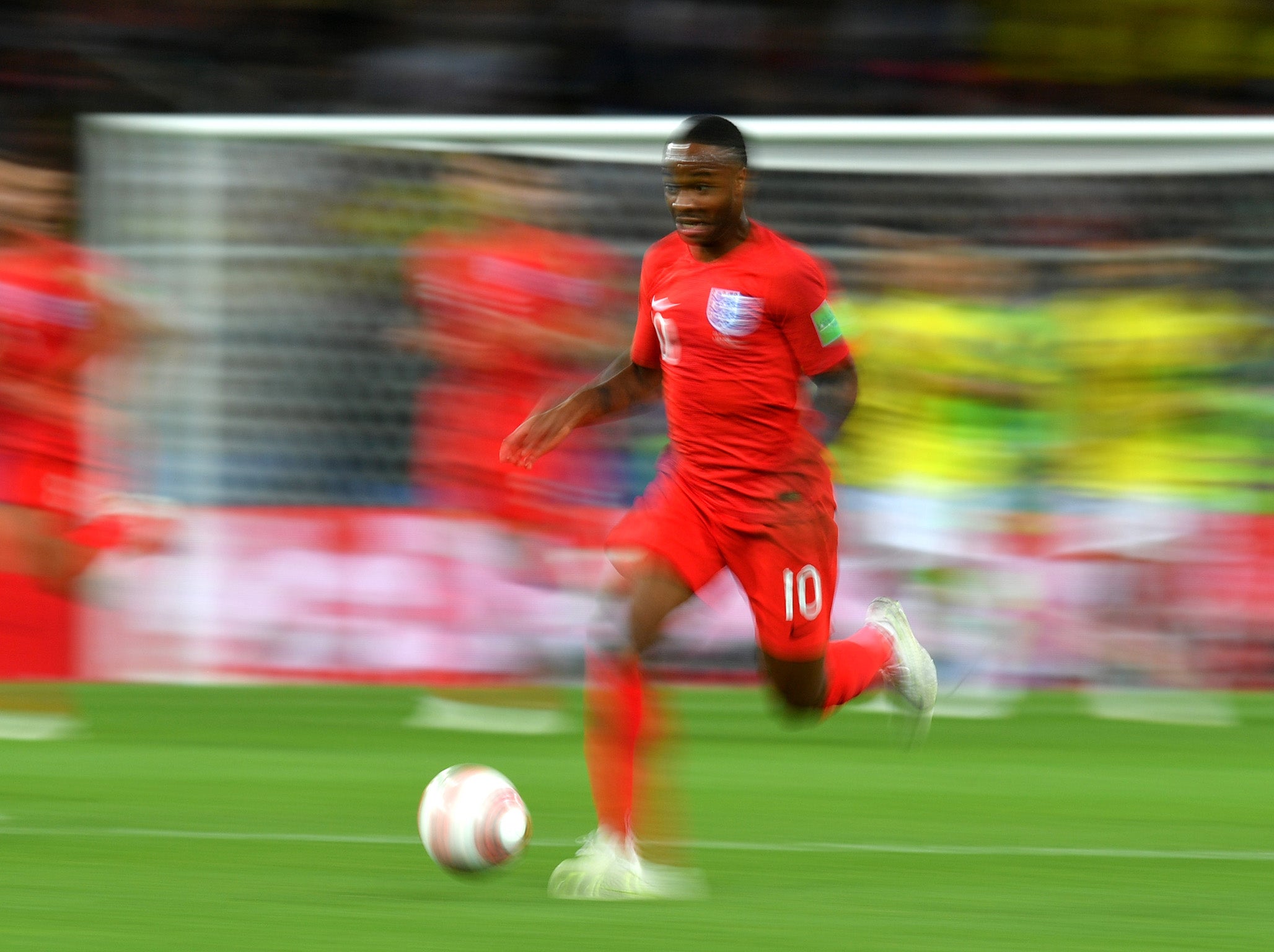
Raheem Sterling played in 33 of Manchester City’s 38 Premier League matches last season, as Pep Guardiola’s stylish side won the title with 19 points to spare. He scored 23 goals in all competitions – averaging one every other game – and laid on 13 assists. In total he played a key role in 29 league goals: only Mohamed Salah (42) and Harry Kane (32) made a greater contribution.
In short: Sterling is a very good footballer. So rather than reheating the increasingly tedious Is-Sterling-Good-Enough-To-Play-For-England debate, is it not perhaps time to ask how Southgate can subtly tweak his system to bringing the best out of possibly his second most talented and influential footballer?
You can see what Southgate is thinking. England lack a genuinely dynamic creative midfielder, and so it makes sense to shoehorn Sterling into the role of second striker: a roaming playmaker to dwell in the half-space behind Harry Kane. But the incision – perhaps even the intelligence – is not quite there. Maybe now is the time for Southgate to replicate Southgate’s approach and move Sterling out wide on the right. Although if Dele Alli fails to recover his fitness, it may already be too late.
Colombia get under England’s skin
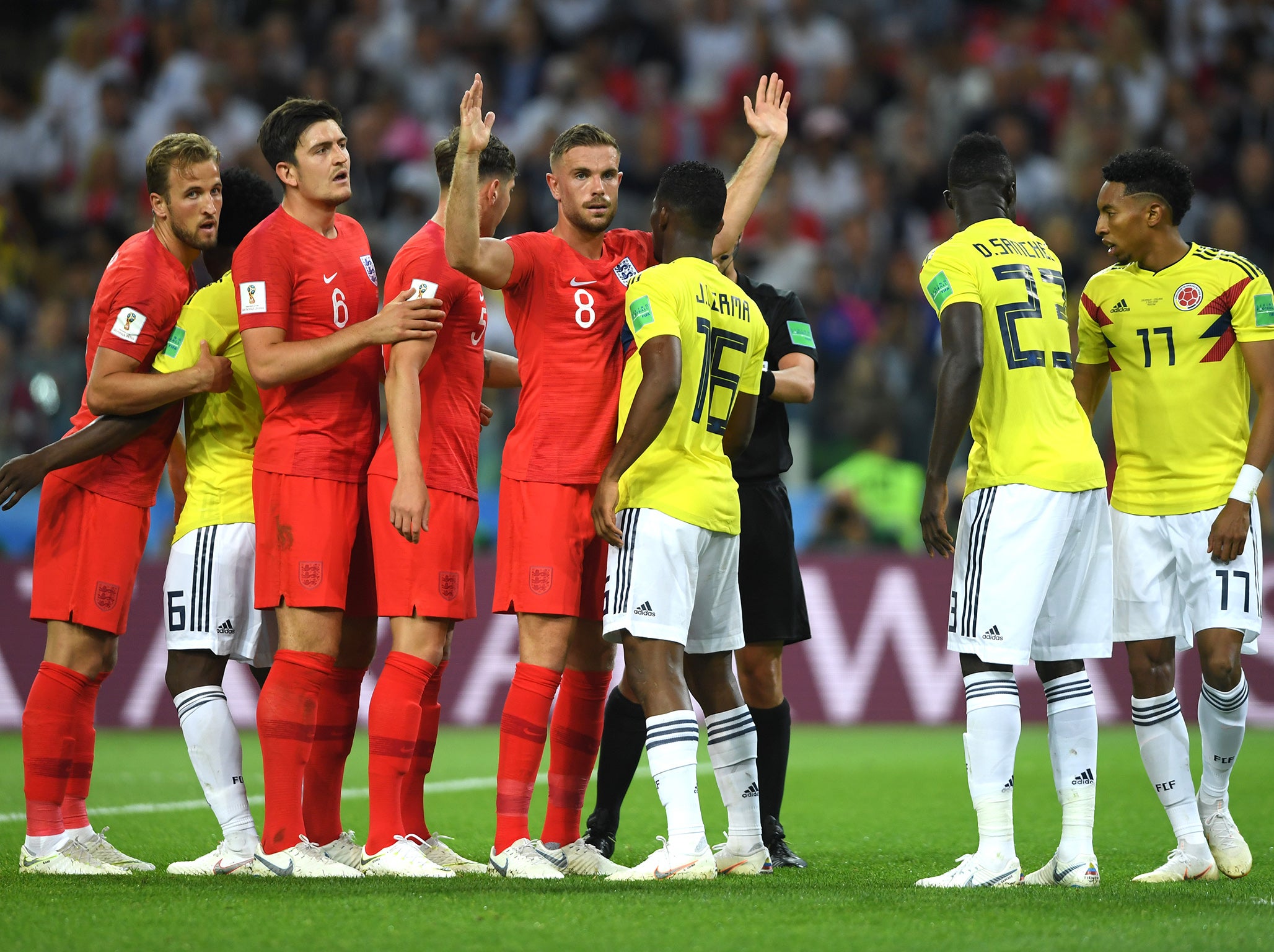
Juan Cuadrado shoulder barging an incandescent Harry Maguire well after the ball had already gone. Wílmar Barrios pushing his head into Jordan Henderson’s chest, swiftly followed by his chin. A member of Colombia’s coaching staff barging into a bemused Raheem Sterling immediately after the half-time whistle and then having the effrontery to march immediately over to the referee imploring him to keep an eye out for England’s unsporting behaviour.
This was a new challenge for this young England side. Southgate prides himself on being a straight-talker and strains to avoid clichés in his always well-received press conferences and that honesty is something that has filtered through to his team. But Colombia tested that patience and calmness under pressure to the max. Their aggression was quite clearly a pre-ordained tactic.
How did England respond? Generally very well, even if Maguire twice came close to losing his cool – first with Cuadrado’s gamesmanship and then with Barrios’ butt. An argument can even be made that they began responding in kind, especially when Henderson – a strapping 6 ft lad from Sunderland – collapsed to the turf in a heap. Most importantly they avoided too many unnecessary yellow cards, especially as the cautions they picked up (Henderson and Jesse Lingard) will be wiped after this match.
Cuadrado struggles to make up for Rodríguez absence
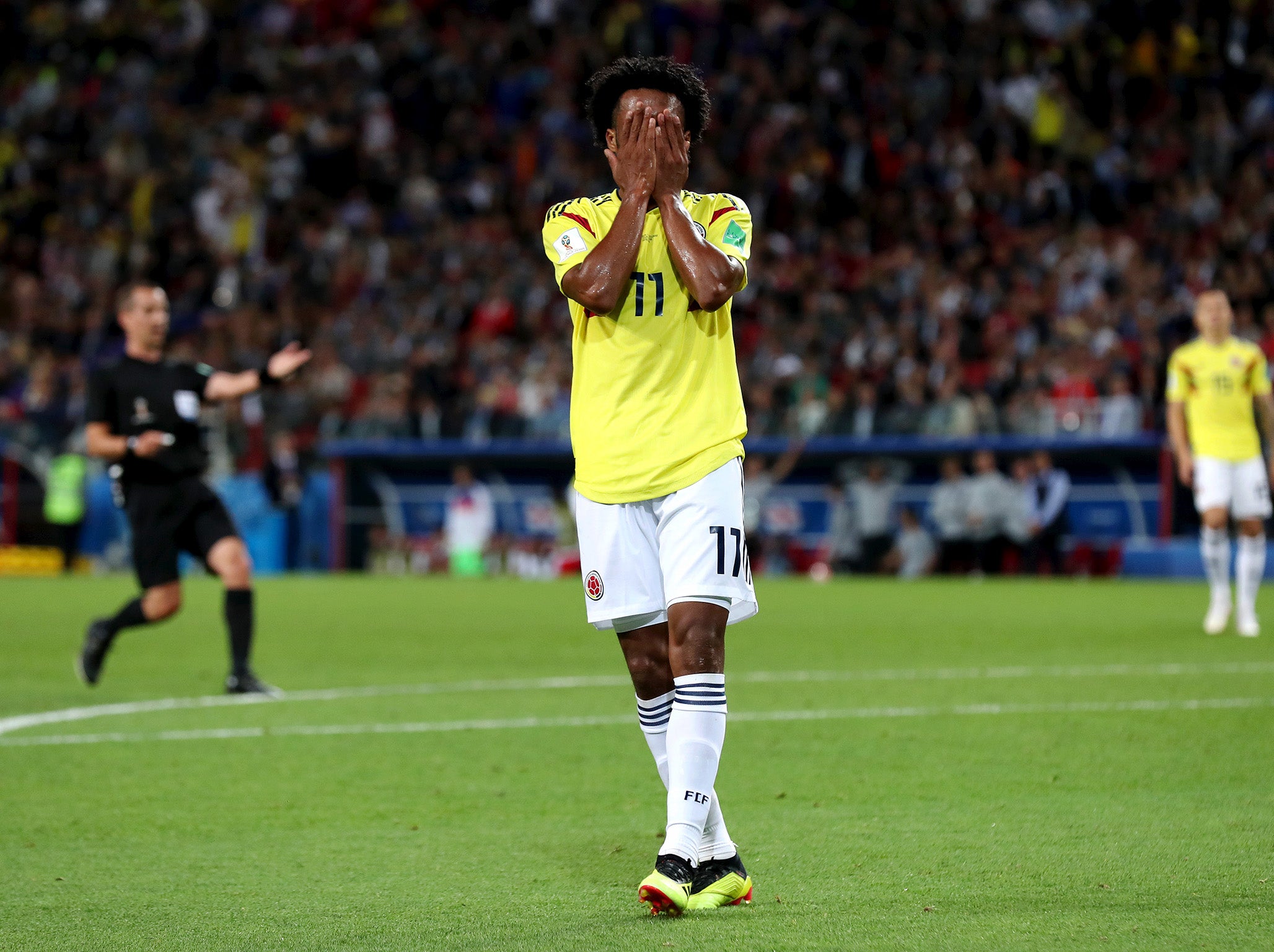
The loss of Bayern Munich midfielder James Rodríguez ahead of this fixture was nothing short of a disaster for Colombia. Not only did José Pékerman not include the 26-year-old playmaker in his starting XI, Rodríguez was marked as “absent” in the official team list, meaning he was not even fit enough to appear as a substitute.
In his absence, Cuadrado’s role changed greatly. Colombia’s right-back Santiago Arias was handed far more defensive responsibility than in the win over Senegal, meaning Cuadrado did not drop as deep in search of the ball. Instead he hugged the right touchline – as predicted by Michael Cox in this piece – ever ready to burst forward on the counter-attack.
He coped with his task admirably well: passing the ball with greater accuracy (85.1 per cent), completing more dribbles (3) and drawing more fouls (2) than any of his team-mates. And yet he wasn’t Rodríguez. Colombia struggled to get their foot on the ball throughout – reliant on England midfield mishaps to pounce upon – and until additional time they struggled.
Kane’s nervelessness bodes well for future
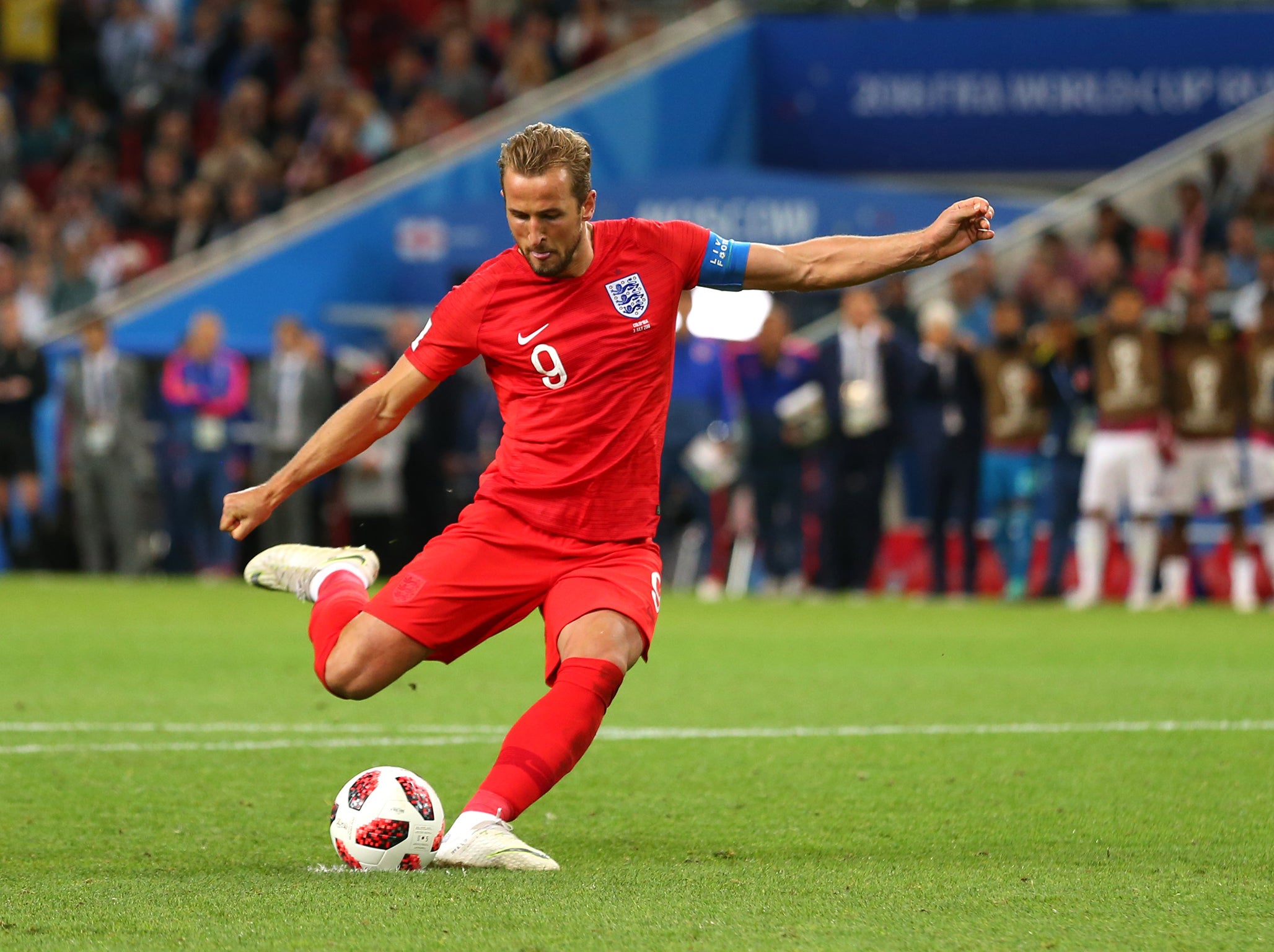
Harry Kane had to wait 3 minutes and 36 seconds between being hauled down in the penalty box by Carlos Sánchez and stepping up to loft the ball nonchalantly down the middle of David Ospina’s goal.
It was a similar story in the group game against Panama, with Kane forced to wait a total of four minutes and 42 seconds. That’s over eight minutes he has to spend ignoring the protests of opposing players, maintaining his cool under exceptional pressure, before stepping up to the spot. He has slotted home all three.
Such nervelessness bodes exceptionally well for the latter stages of the tournament. Not only is Kane a superb penalty taker, he is also a dressing room leader and the sort of player whose example will inspire his team-mates in matches to come. Two clear in the race for the Golden Boot, he is also very well placed to finish as the tournament top scorer, a remarkable achievement in itself.
Join our commenting forum
Join thought-provoking conversations, follow other Independent readers and see their replies
Comments